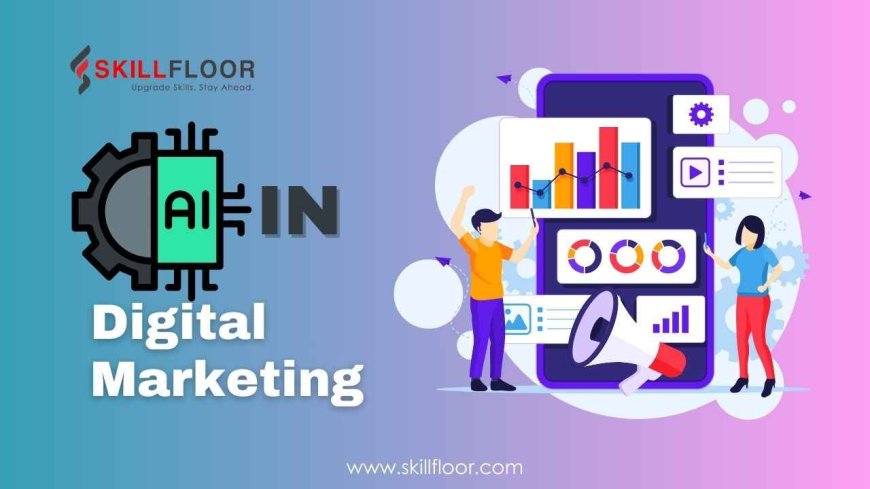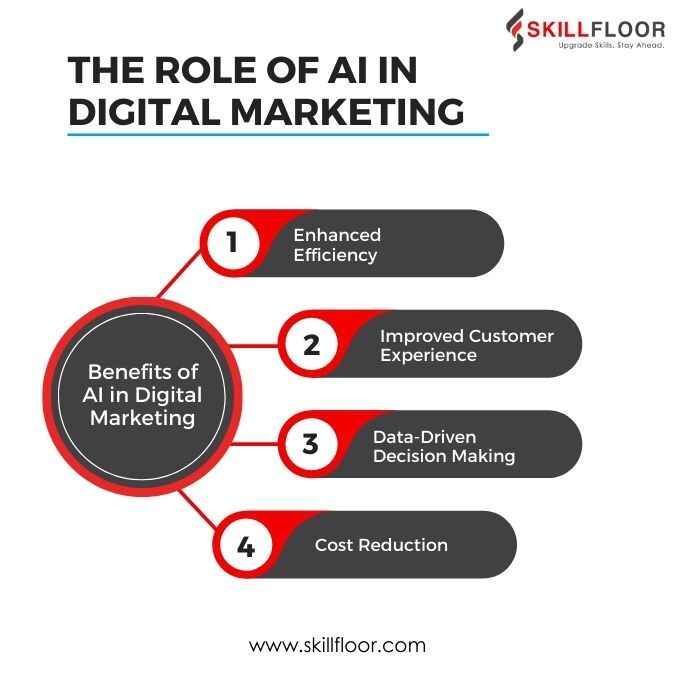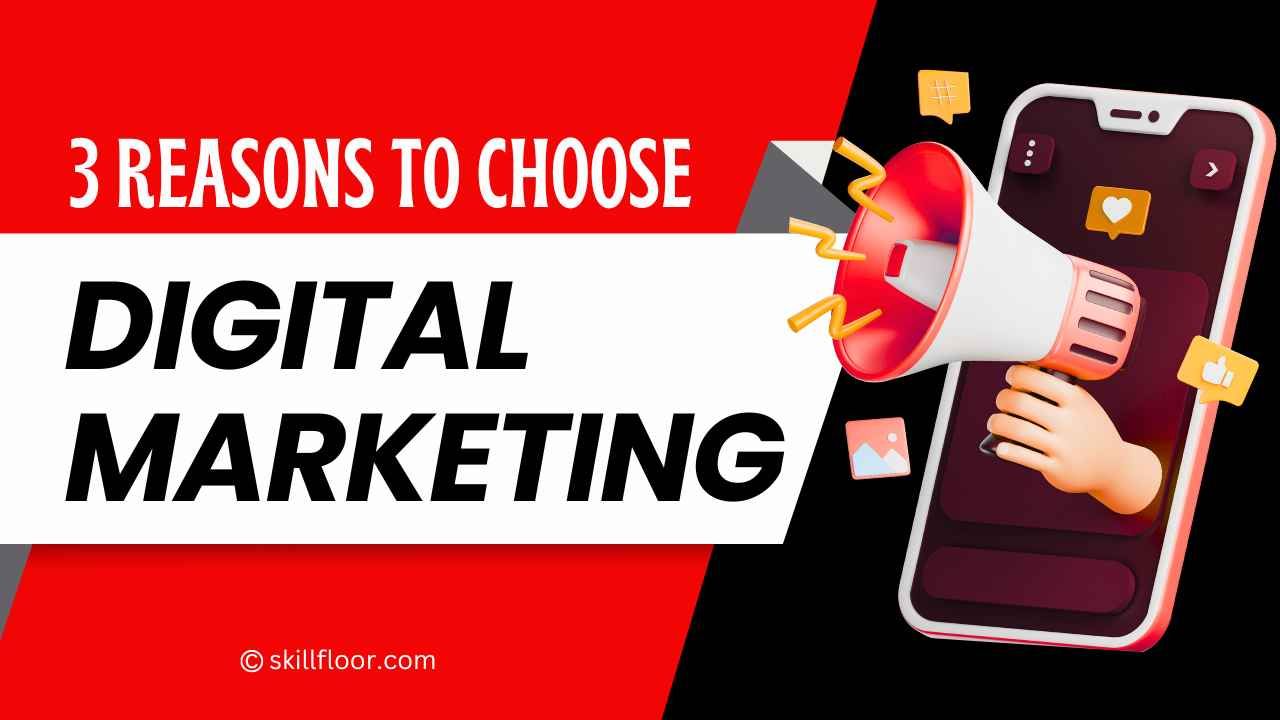The Role of AI in Digital Marketing
Explore how AI revolutionizes digital marketing by enhancing personalization, automating tasks, and driving data-driven strategies for improved customer engagement and business growth.

AI in Digital Marketing is reshaping how businesses connect with their audiences. By analyzing large amounts of data, AI tools can identify patterns and trends that help marketers optimize their campaigns. This technology enhances personalization, allowing businesses to tailor their messages to specific audience segments. For instance, AI can predict consumer behavior, enabling marketers to deliver content that resonates with individual preferences. This not only improves customer experience but also makes marketing efforts more effective. Integrating AI in Digital Marketing helps companies stay competitive in a data-driven world.
Moreover, AI in Digital Marketing streamlines various processes, from content creation to SEO optimization. AI-powered tools can generate insights on the best keywords to target, helping marketers improve their search engine rankings. Additionally, AI can automate tasks such as email marketing and social media scheduling, freeing up time for marketers to focus on strategy and creativity. As digital marketing continues to evolve, the role of AI becomes more integral, providing businesses with the tools they need to navigate the complexities of the online marketplace efficiently. Adopting AI in Digital Marketing not only enhances operational efficiency but also leads to more informed decision-making, driving better outcomes for marketing campaigns.
Key Applications of AI in Digital Marketing
Personalization and Customer Insight
AI assists marketers in creating tailored experiences by evaluating customer data and forecasting preferences. Algorithms can track user behavior on websites, allowing firms to tailor content and recommendations to individual users. This customization increases engagement and drives conversions. For example, online businesses can recommend things based on previous purchases and browsing behavior. This personalized strategy develops client ties and increases loyalty.
Predictive Analytics
Predictive analytics forecasts future patterns based on historical data, allowing marketers to anticipate client wants and preferences. AI-powered systems can scan massive volumes of data to identify trends and anticipate results. This aids in fine-tuning marketing initiatives by ensuring that the correct audience receives the right message at the right time. Data-driven decisions boost marketing effectiveness and return on investment. This proactive strategy also enables more efficient resource allocation and strategic planning.
Content Creation and Curation
AI is useful for creating and curating content. Tools such as GPT-3 can generate high-quality written material that resonates with the audience. Furthermore, AI applications may curate relevant information from a variety of sources, ensuring that viewers receive fresh and engaging content. This automation saves time and ensures consistent content marketing efforts. For example, AI may generate blog pieces, social media updates, and newsletters that are tailored to certain audience segments.
ChatBots and Customer Service
AI-powered chatbots respond instantly to consumer requests, improving customer service and satisfaction. These chatbots can manage numerous interactions at once, offering 24-hour service without requiring human intervention. They handle basic queries and duties, freeing human agents to concentrate on more complicated concerns. This leads to speedier resolution times and a better overall customer experience. Chatbots can also collect useful client feedback and statistics to help enhance service quality.
Programmatic Advertising
Programmatic advertising uses artificial intelligence to automate the real-time purchase and sale of ad space. This technology ensures that commercials are delivered to the right audience at the right moment, increasing the effectiveness of advertising efforts. By evaluating user data and behavior, AI can automatically decide the optimum ad locations and prices. This results in more precise targeting and increased engagement rates. Programmatic advertising also enables for modifications based on performance measures, which improves the effectiveness of ad spending.
Benefits of AI in Digital Marketing
-
Enhanced Efficiency
By automating repetitive processes, AI allows marketers to focus on strategic planning and creative creation. This change helps teams to work more efficiently, resulting in increased overall output. Marketing initiatives can be completed more quickly because automation handles the mundane components. AI, for example, may automate email marketing, social media scheduling, and data analysis, thereby improving productivity. This efficiency enables organizations to remain agile and responsive to market changes.
-
Improved Customer Experience
AI delivers insights into customer preferences and behaviors, allowing for more personalized and relevant interactions. This insight enables the creation of experiences that resonate with clients, hence increasing happiness and loyalty. AI, for example, can personalize product suggestions, tailor marketing messages, and improve customer assistance. These personalized gestures help clients feel cherished and understood. As a result, firms develop deeper ties with their target audience.
-
Data-Driven Decision Making
AI provides significant insights through data analysis, allowing marketers to make more educated decisions. This data-driven strategy minimizes reliance on guesswork, resulting in more effective marketing campaigns. By examining patterns and trends, AI can discover opportunities and future problems. For example, it can identify which initiatives are functioning effectively and which require adjustments. This informed decision-making process raises the chances of campaign success and more efficient resource allocation.
-
Cost Reduction
Artificial intelligence can be used to automate processes and optimize marketing campaigns, lowering operating expenses. Businesses can achieve their goals with fewer resources, resulting in higher overall profitability. For example, AI can manage client inquiries using chatbots, minimizing the need for massive customer support teams. It can help improve the ad budget by targeting the proper audience more efficiently. These efficiencies enable organizations to save money while continuing or even increasing their marketing efforts.

What are the Challenges and Considerations?
While AI offers numerous benefits, there are also challenges to consider. These include:
-
Data Privacy Concerns: The use of AI involves the collection and analysis of large amounts of data, raising concerns about data privacy and security. Marketers must ensure compliance with regulations and protect customer information.
-
Integration with Existing Systems:
Implementing AI solutions requires integration with existing marketing systems and processes. This can be complex and may require significant investment in technology and training.
-
Keeping Up with AI Advancements: The field of AI is constantly evolving, and staying up-to-date with the latest advancements can be challenging. Marketers need to continuously educate themselves and adapt to new tools and techniques.
Artificial intelligence is certainly altering the digital marketing world. Businesses that embrace the potential of AI may improve their marketing efforts, provide personalized experiences, and achieve greater results. To fully realize AI's promise, it is critical to solve the hurdles and ensure responsible use.




























































